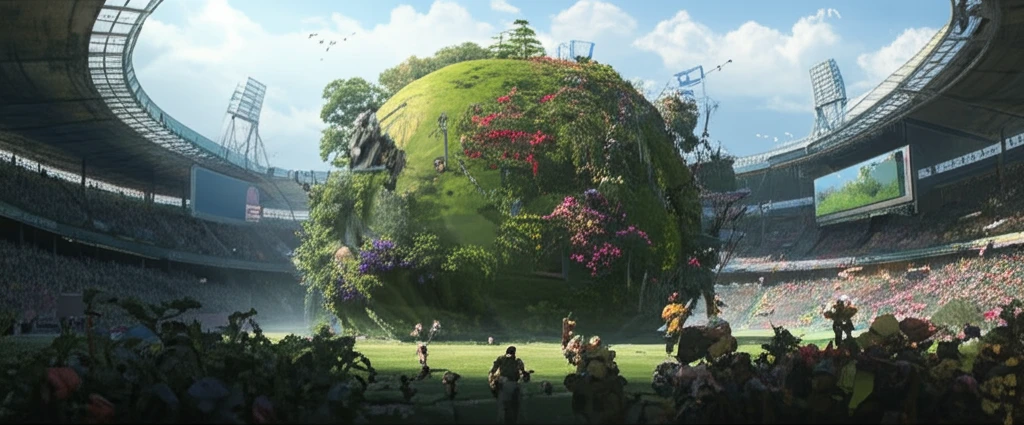
The Balancing Act: How Football Clubs Navigate Tensions and CSR for a Winning Strategy
"Exploring the relationship between organisational tensions and Corporate Social Responsibility (CSR) in the football sector, and its impacts on strategy."
In the dynamic world of football, clubs face a constant balancing act. Beyond the thrill of the game, these organisations are grappling with increasing demands for corporate social responsibility (CSR). This means addressing social and environmental concerns while striving for success on the field. For clubs, CSR has emerged as a critical tool for managing their broader impact, extending far beyond the stadium.
The rise of CSR in football reflects the growing commercialisation of the sport. Like any modern business, football clubs face pressure from stakeholders – fans, sponsors, and communities – to demonstrate their commitment to ethical and sustainable practices. Moreover, football is increasingly seen as a powerful platform for advancing social and environmental causes, amplifying the need for a strategic approach to CSR.
However, this pursuit is rarely straightforward. Clubs often encounter various organisational tensions, navigating conflicting priorities and stakeholder expectations. These tensions can arise from the need to balance financial goals with social missions, short-term results with long-term sustainability, and local community needs with global ambitions. How clubs manage these tensions can significantly impact their success and reputation.
Decoding Organisational Tensions in Football: Key Conflicts and How to Manage Them

A study of Danish football clubs sheds light on how these organisations perceive and manage these inherent tensions. The research identifies key conflicts that clubs face and explores the relationship between the level of tension and the extent of their CSR engagement.
- Football vs. non-football activities: Balancing the core business of the sport with broader community and social initiatives.
- Elite vs. non-elite discussions: Allocating resources and attention between high-performance teams and grassroots development.
- Financial sustainability vs. environmental and social activities. How to integrate social and environmental value over organizational goals.
Navigating the Future: Practical Strategies for Balancing Tensions
While this study offers valuable insights, it also underscores the need for further research. Exploring the dynamic interplay between organisational tensions and CSR in everyday organisational practices is essential. Moreover, understanding how the combination of tensions can stimulate creativity and change, as opposed to resistance and conflict, is critical for the future of football management. By acknowledging and addressing these tensions, football clubs can pave the way for a more sustainable, ethical, and ultimately successful future. How about these three tips: <ul> <li>Embrace Stakeholder Engagement</li> <li>Transparent Communication</li> <li>Adaptive Strategies</li> </ul>
